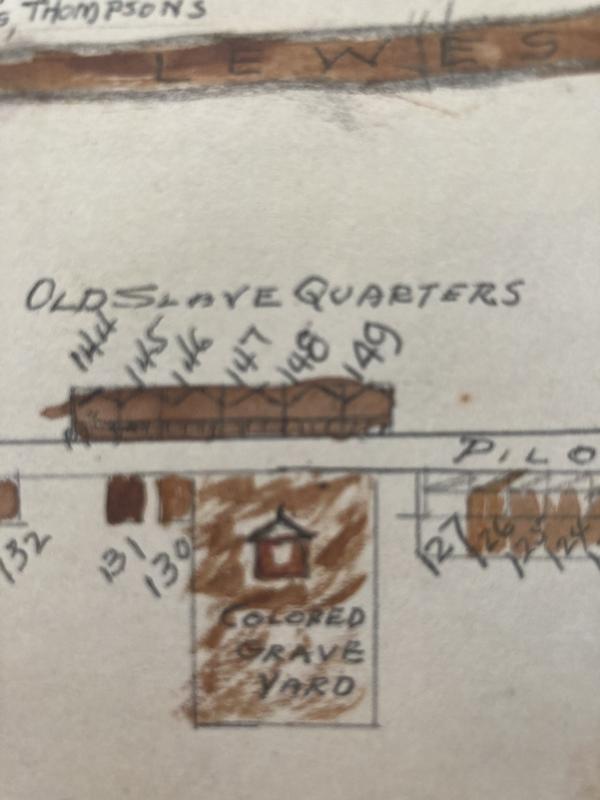As in most of the country, the African American history of Lewes and Sussex County is complicated and sometimes difficult to hear.
The Lewes Historical Society is not shying away from that history in its latest walking tour, as participants visit nine sites throughout Lewes to learn about the good, the bad and the sometimes ugly past.
“Finding Their Voices: The History and Legacy of the African American Community in Lewes, Del.” debuted in February, taking participants through history from the Colonial period of slavery, to post-Civil War and segregation, to more recent times.
Marcos Salaverria, LHS director of education, spent two years researching African American history to put together the tour. He said the project was given to him by former Executive Director Jim Abbott.
Lewes’ African American history has been in the spotlight in recent years, with the honorific renaming of West Fourth Street as Dr. Martin Luther King Jr. Way, the renaming of Beach 2 to Johnnie Walker Beach and the recent discussion over the placement of the menhaden fishing net reel on the historical society’s campus.
Salaverria was tasked with diving into the historical society’s archives to uncover overlooked or ignored stories of Lewes’ past.
“This is not separate history,” Salaverria said. “It’s very much at the core of Lewes.”
This tour goes well beyond those three recently discussed topics, offering a deeper look at the lives of many Black residents, both free and enslaved.
The tour begins at the Hiram Burton House on the historical society campus, then moves to the Early Plank House, which has been reinterpreted as an enslaved person’s cabin. Salaverria said the dimensions match those of slave quarters that were once present on Pilottown Road across from the St. George AME Cemetery. Earlier this year, a project led by the Greater Lewes Foundation discovered that as many as 550 African Americans are buried in the cemetery. The previous estimate was fewer than 100.
The third site of the tour is the menhaden net reel, which was once located at the Fish Products factory on Lewes Beach. The reel represents a time in the 20th century when white and Black employees worked together despite most of the country still being in the midst of the segregation era.
The tour then moves off the LHS campus to Park Avenue, where the city’s first Black school opened. The original structure still exists, and it provides a familiar setting in a photograph taken outside the school in 1907.
Tour participants next head to St. George AME Church; the site of the former Happy Day Club; the former St. Paul’s Methodist Church, now a private home; a former free Black family home on Market Street; and finish the tour at the Ryves Holt House on Second Street, the oldest home in the the state of Delaware. Stories depicting the lives of the Black community are depicted at each stop.
Salaverria said the tour is expected to grow in scope. With the release of a mobile app later this year, he said, the plan is to expand the tour to 25 sites throughout Sussex County.
About 100 people have taken the tour so far, and reception has been very positive, Salaverria said.
“I would say the input overall has been very respectful, has been inquisitive,” he said. “Certainly there have been questions I don’t know the answer to. As I tell all my guides, I may not know the answer, but I’ll do my best to find it out. More research to come.”
The title of the tour, “Finding Their Voices,” was inspired by a quote from Ilyasah Shabazz, an author, social activist and daughter of Malcolm X. Shabazz said, “Teaching, and specifically teaching critical thinking about history, is a way to help people find their voices.”
Tours are held at 2 p.m., most Saturdays and Sundays, and 4 p.m., most Tuesdays. Tickets are $10 per adult and can be reserved at historiclewes.org/visit/tours.html.
In addition to the tours, the Lewes Historical Society is also developing an oral history project. Individuals will be video recorded answering 10 questions that are designed to get a holistic story from each person, providing a comprehensive window into the African American experience.
Lewes Historical Society is looking for volunteers to assist in a variety of capacities. Training sessions are scheduled for Tuesdays, April 5 and 19. Anyone interested should email Marcos Salaverria at marcos@historiclewes.org.
Tour stops
Site 1 - Hiram Burton House, LHS campus
Site 2 - The Early Plank House & Old Slave Quarters, LHS campus
Site 3 - Menhaden fishing net reel, LHS campus
Site 4 - First Black school in Lewes, 307 Park Ave.
Site 5 - St. George AME Church, 317 Park Ave.
Site 6 - Robinson’s Coliseum & The Happy Day Club, corner of W. Fourth Street and DuPont Avenue
Site 7 - St. Paul’s United Methodist Church, 318 W. Fourth St.
Site 8 - Free Black family home - Summers & Seymour, 330 Market St.
Site 9 - Ryves Holt House, 218 Second St.
Nick Roth is the news editor. He has been with the Cape Gazette since 2012, previously covering town beats in Milton and Lewes. In addition to serving on the editorial board and handling page layout, Nick is responsible for the weekly Delaware History in Photographs feature and enjoys writing stories about the Cape Region’s history. Prior to the Cape Gazette, Nick worked for the Delmarva Media Group, including the Delaware Wave, Delaware Coast Press and Salisbury Daily Times. He also contributed to The News Journal. Originally from Boyertown, Pa., Nick attended Shippensburg University in central Pennsylvania, graduating in 2007 with a bachelor’s degree in journalism. He’s won several MDDC awards during his career for both writing and photography. In his free time, he enjoys golfing, going to the beach with his family and cheering for Philadelphia sports teams.
























































